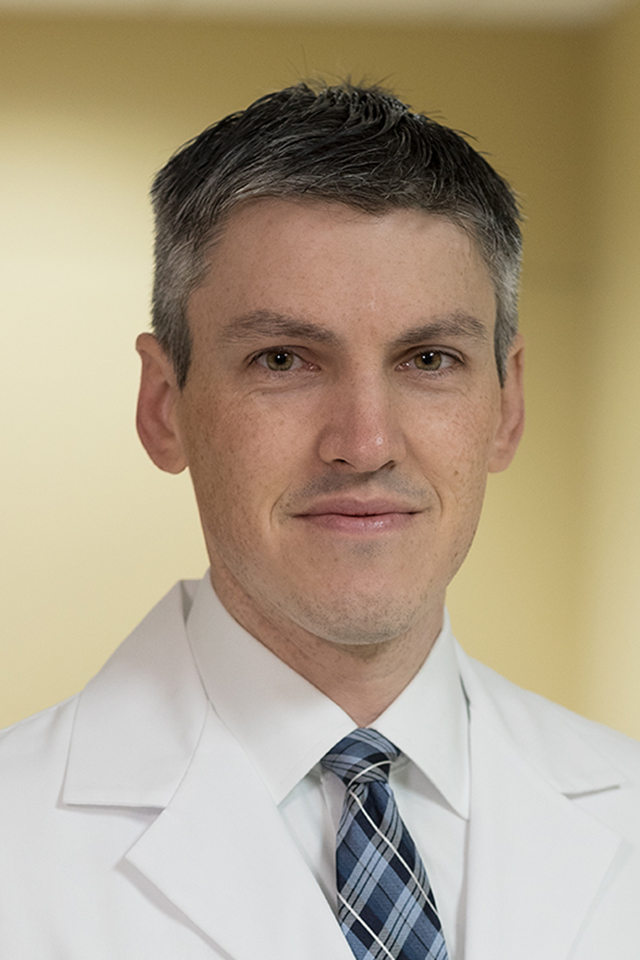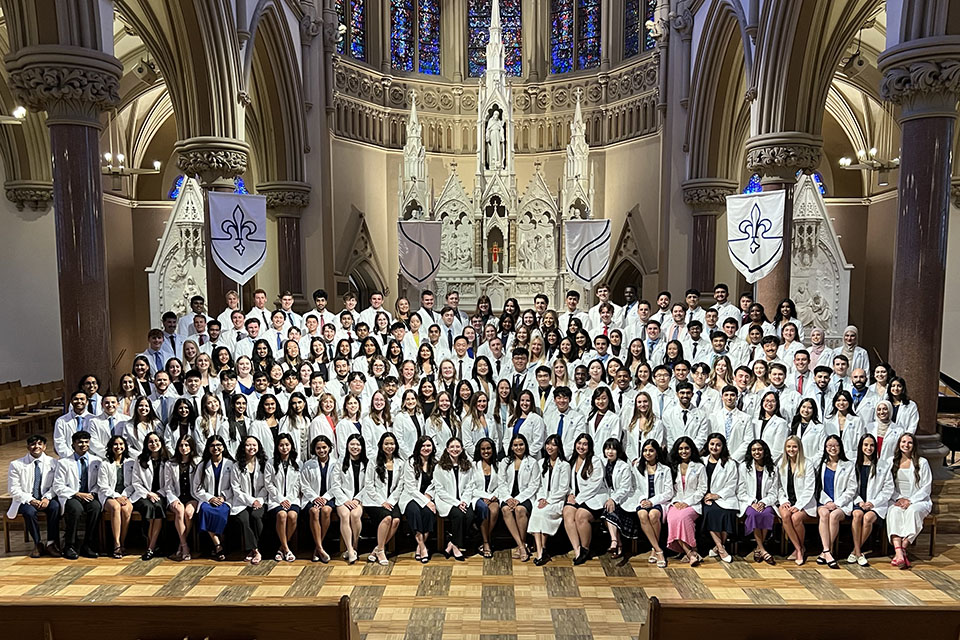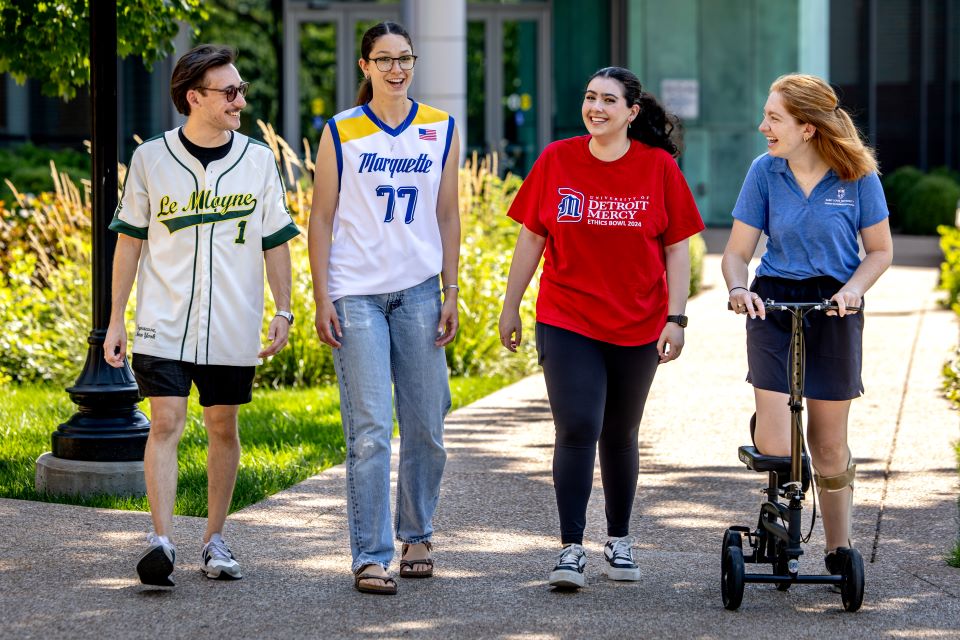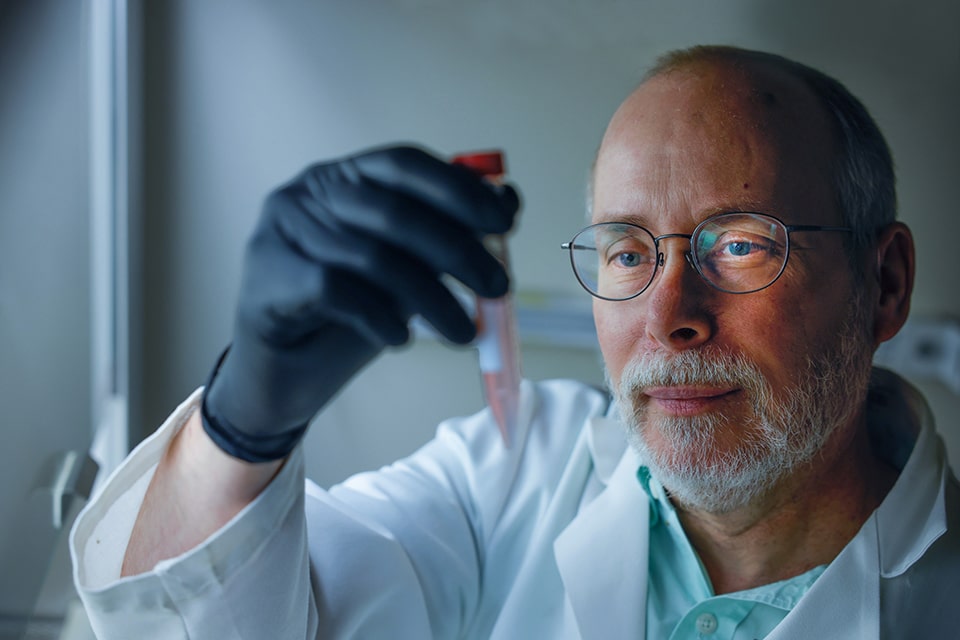SLU Study: Head and Neck Cancer Diagnostic Delays Linked to Antibiotics Despite Clinical Practice Guidelines
ST. LOUIS — Researchers at Saint Louis University School of Medicine say diagnostic delays frequently occur in patients with undiagnosed head and neck cancer (HNC) and are calling for improved dissemination of current clinical practice guidelines in a new paper published Aug. 24 in JAMA Otolaryngology – Head & Neck Surgery.
Researchers found that undiagnosed HNC patients with neck swelling and other symptoms are frequently prescribed antibiotics, rather than following current clinical guidelines recommending evaluation for cancer, which can delay diagnosis and complicate treatment for their cancer.

Sean Massa, M.D.
Sean Massa, M.D., associate professor of otolaryngology at SLU, is the paper’s senior author. Massa, a surgeon who treats HNC patients and other tumors of the head and neck, says diagnostic delays can translate into requiring more aggressive treatments with more toxicities and a lower cure rate.
“ENT doctors usually are quite familiar with this cancer diagnosis and can use their training and tools to parse out whether it be symptoms caused by cancer or some other cause,” Massa said. “But it's much more challenging for primary care doctors to make that determination, and I worry that this knowledge is not being disseminated to the broader medical community.”
Researchers analyzed temporal trends, associated factors and diagnostic times between antibiotic prescribing before HNC diagnosis. They found that the number of patients receiving antibiotics leading up to cancer diagnosis has not changed after the release of clinical practice guidelines. Researchers say they hope to see that rate decrease.
In this cohort study of 7,811 patients with HNC, 15.6% received an antibiotic within three months of HNC diagnosis, resulting in a statistically significant 21.1% longer time to HNC diagnosis. This prescribing rate was static over the study period, and specific clinical and oncologic factors were associated with higher antibiotic prescription rates.
Researchers used data from a deidentified electronic health records data set from Jan. 1, 2011, to Dec. 31, 2018. Data analysis was conducted from May 1 to Nov. 9, 2022. Researchers at SLU’s AHEAD Institute maintained the data resource and supported the study through analytics and data management.
Other authors include James A. Gallogly, M.D., Austin T. Armstrong, Henry Ideker, M.D., Ronald J. Walker, M.D., of Department of Otolaryngology – Head and Neck Surgery, Saint Louis University School of Medicine; Joanne Salas, MPH, of the Department of Family and Community Medicine at Saint Louis University, Harry S. Truman Veterans Administration Medical Center, Columbia, Mo., and the Advanced HEAlth Data (AHEAD) Research Institute at SLU; Matthew C. Simpson, MPH, of Department of Otolaryngology – Head and Neck Surgery, Saint Louis University School of Medicine, and the Advanced HEAlth Data (AHEAD) Research Institute at SLU; and Jennifer V. Brinkmeier, M.D., Department of Otolaryngology – Head and Neck Surgery, Washington University School of Medicine in St. Louis.
About AHEAD Institute
The Advanced HEAlth Data (AHEAD) Research Institute at Saint Louis University is a comprehensive center for data-driven innovation and research to improve the health of individuals and populations. The institute brings together researchers from various fields and disciplines to help improve patient and population health, advance the quality of health care and decrease health care costs. The new institute will utilize and develop data resources, novel analytic methods, predictive modeling, machine learning, and integrated wearable health devices and collaborate with national research networks.
About SLU School of Medicine
Established in 1836, Saint Louis University School of Medicine has the distinction of awarding the first medical degree west of the Mississippi River. The school educates physicians and biomedical scientists, conducts medical research, and provides health care on a local, national and international level. Research at the school seeks new cures and treatments in five key areas: cancer, liver disease, heart/lung disease, aging and brain disease, and infectious diseases.
Latest Newslink
- SLU Welcomes 175 New Medical Students at White Coat CeremonySaint Louis University’s School of Medicine marked a pivotal milestone for 175 incoming medical students at its annual White Coat Ceremony. On Sunday, July 27, faculty, family, and friends convened at St. Francis Xavier College Church to honor the students' achievements and their forthcoming pledge to the medical profession.
- Saint Louis University Hosts National Jesuit Student Leadership ConferenceSaint Louis University hosted student government leaders from Jesuit colleges and universities on campus July 22-26. This was the first time SLU hosted the National Jesuit Student Leadership Conference.
- James Hitchcock, Ph.D.: 1938-2025James F. Hitchcock, Ph.D., professor emeritus of history, died Monday, July 14, 2025. He was 87. Hitchcock authored several books on the history of the Catholic Church.
- Lentine Receives Award of Merit for Outstanding Contributions to Scientific MedicineKrista Lentine, M.D., Ph.D., professor of medicine at Saint Louis University's School of Medicine, is the 2024 recipient of the St. Louis Metropolitan Medicine Society Award of Merit for Outstanding Contributions to Scientific Medicine.
- We Should Treat More People with Hepatitis B, SLU Expert SaysIn a pair of articles published in Lancet Gastroenterology and Hepatology, scientists lay out the case for why we should expand treatment recommendations for people with hepatitis B.
- Running Interference: Scientists Block Viral RNA, Aim to Cure Hepatitis BIn a recent paper published in Science Translational Medicine, a SLU scientist reports that a class of drugs called RNA interference (RNAi) therapeutics represent a major advancement in the treatment of chronic hepatitis B virus infections.













